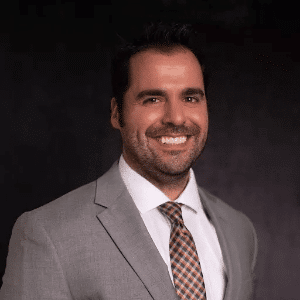The Me Too movement has sparked a wave of sexual assault victims coming forward to share their stories. The number of individuals who continue to recount their experiences is a testament to their bravery, but it also raises questions of how to best support someone who confides in you.
In the United States, one in six women has experienced some form of sexual assault. This amounts to, on average, 463,634 new sexual assault victims every year. This means everyone knows a survivor, and it is important to be prepared to support someone who has been sexually assaulted.
When determining how to support someone who has been sexually assaulted, there a few things not to do. These words and actions include:
- Doubting their story,
- Blaming them, and
- Forcing them to share their experience before they are ready.
If you’re reading this post, you want to help your loved one through an extremely challenging part of their life. To support someone who has been sexually assaulted, be patient, be compassionate, and let them take steps toward recovering on their terms.
Encourage Them To Seek Professional Help
If someone comes to you right after they are sexually assaulted, the best thing you can do is take them to a hospital. Sexual assault victims are a priority at hospitals and are often treated very quickly. Medical providers like hospital staff know how to collect evidence and treat injuries incurred during the assault. Hospitals are also equipped with sexual assault trauma counselors who can provide guidance and advice to victims.
Of course, your loved one might object to going to the hospital. They also might object to calling the police, but you should gently encourage them to do so. Filing a police report is the first step in holding a sexual assaulter liable for their actions. Having a police report on record can also help with obtaining a restraining order if that becomes necessary.
While getting professional help is highly encouraged for sexual assault victims, it is important that you not push your loved one to seek these services if they don’t want to. Remember, this person has just been forced to do something against their will. The last thing they need is someone else making them do something that they don’t want to.
Listen, Don’t Speak
It is natural to want to launch into a series of questions when someone tells you they have been sexually assaulted. Who did it? When did it happen? What did they do? However, this interrogation-style inquisition is likely not helpful to your loved one.
They are confiding in you because they have decided they want to talk to you about what happened to them. They are capable of deciding what and how much to share. By allowing them to have this control over the conversation, you are empowering them to begin rebuilding their confidence and self-esteem.
Let your loved one tell you the information they are comfortable sharing. Once they have finished, you can ask, What can I do? Sometimes a sexual assault victim just needs to get the experience out into the open. Other times, they might look to you for recommendations or other guidance or support. It is important that you honor their answer to your question and not push them to do more than they’ve asked.
Encourage Them To Seek Counseling
As a family member, friend, or colleague, it is your job to be there for your loved one. However, it is important for you to remember that you are not a licensed counselor, nor is it your job to be one. After they have gone through the initial process of opening up to you, you should encourage your loved one to talk to a professional counselor.
A counselor can help victims of sexual assault process what happened to them and their emotions surrounding the encounter. Counselors can also refer their patients to other medical services or other resources.
Help Them Find An Attorney To File Legal Action
Depending on how your loved one wants to proceed, you can help them file legal action against their assailant. If they want to pursue charges, it is very important that any evidence from the sexual assault be preserved.
Once you have filed a police report, the victim should obtain legal representation. Some attorneys specialize in sexual assault victim litigation. The team at Silvia Injury Law is equipped to handle your loved one’s case with respect, care, and professionalism.
The legal process takes time. A lawyer can help your loved one understand and navigate the process, so they can focus on healing.
Refer Them To Resources
Even if your loved one does not want to seek professional help or pursue legal remedies, you can still offer them resources for sexual assault survivors. These resources are well-established as a great way to support someone who has been sexually assaulted. They include:
When someone chooses to open up to you about their sexual assault story, it is important that you know how to support someone who has been sexually asssaulted. By encouraging them to go to the hospital, file a police report, retain a sexual assault attorney, and consult with a counselor, you are participating in their recovery.
If you ever find yourself overwhelmed when trying to help your loved one, that is okay. Refer them to one of the resources listed above and take care of your own mental health.
We Are Here To Help
At Silva Injury Law, Inc., we are here to help. Whether your loved one is ready to seek the assistance of a lawyer or they just want to understand their options, we can answer any questions. We have extensive experience helping sexual assault victims. We put the needs of our clients first, and our compassionate, personalized approach is what sets us apart. Call or contact our lawyers online today to learn more.
FIND OUT HOW WE CAN HELP
At Silva Injury Law we promote healing through compassionate advocacy. With each case tailored to the individual, we look our for your best interests by evaluating your unique circumstances. Contact us today for a FREE in person or remote consultation.














 EMAIL
EMAIL  AI-search
AI-search  Access
Access